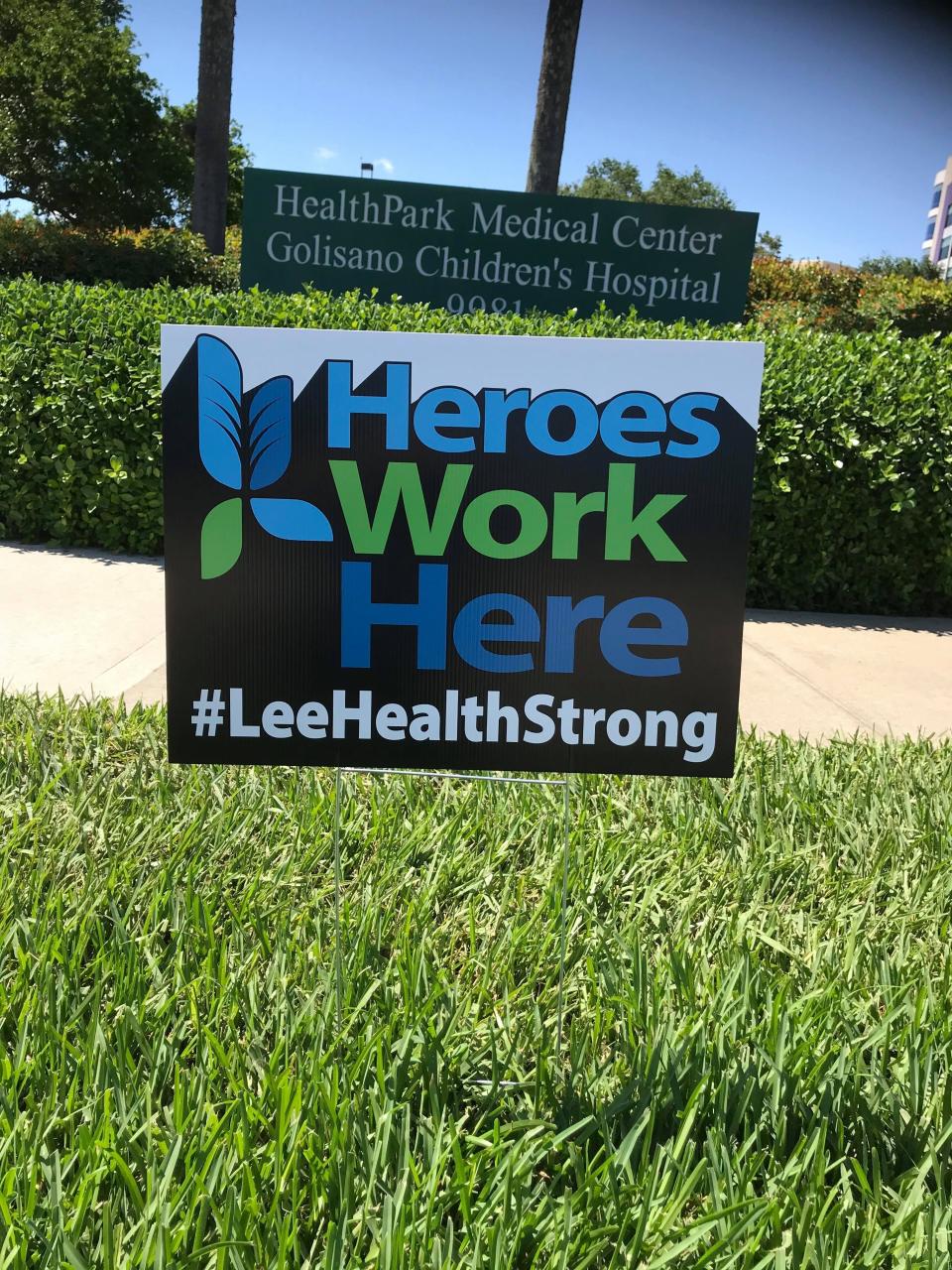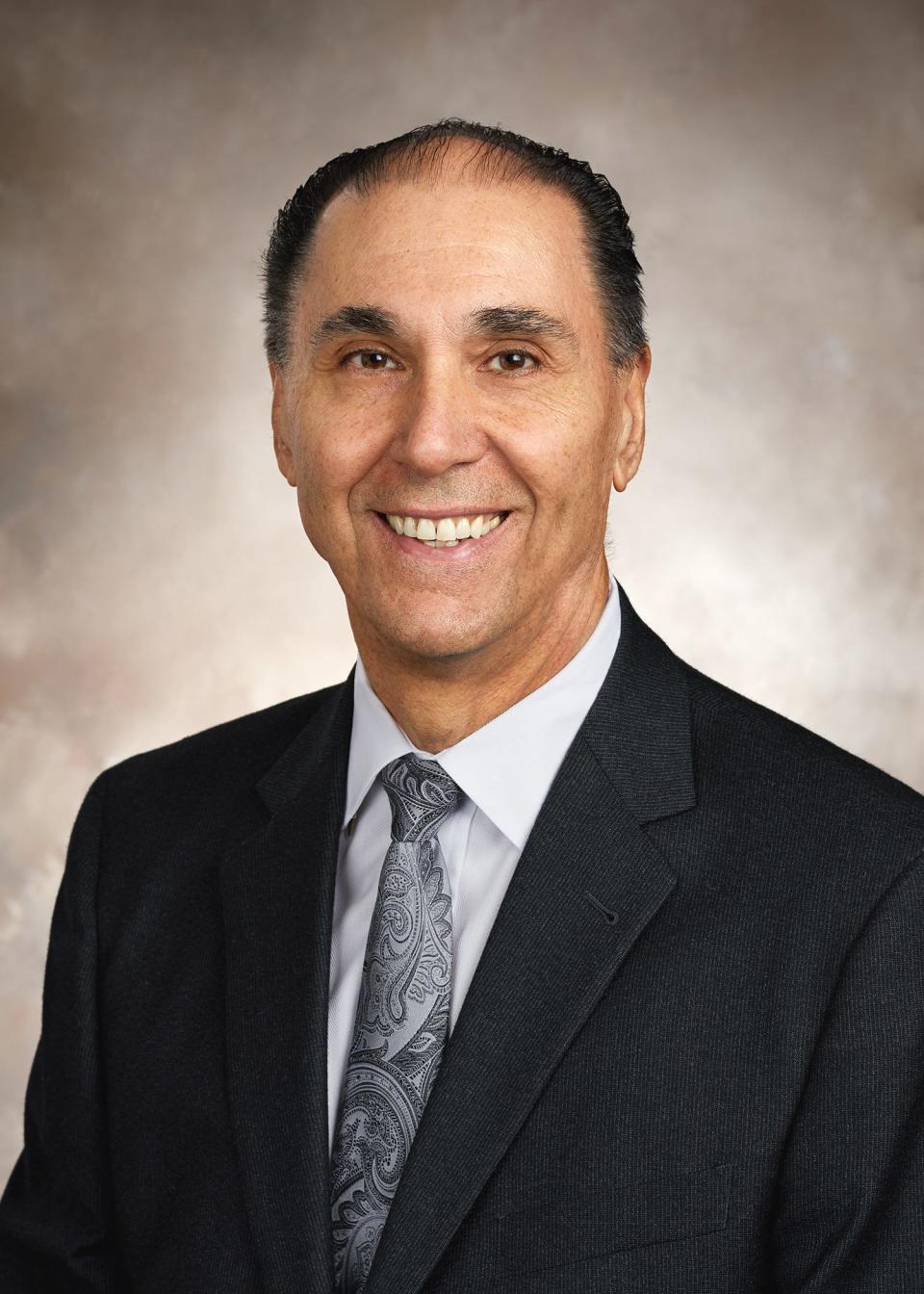Lee Health hosting public forums on staying public or going private
Lee County residents have the opportunity in January to hear why Lee Health, their publicly-run hospital system, may convert to a private nonprofit entity.
Lee Health leaders are holding town halls in each of the five districts represented by elected board members so residents can learn what’s being considered and to ask questions.
A public hearing will be held Jan. 25 at Gulf Coast Medical Center in Fort Myers.
Lee Health is one of the largest public hospital systems in the U.S. and Florida yet it does not receive direct taxpayer support through a property tax levy for its $3 billion operating budget. That’s despite being a safety-net hospital system which treats and stabilizes all patients regardless of ability to pay.

The system faces competition from for-profit hospital companies that care for more commercially insured patients with higher reimbursement, have lower charity-care volumes, investor income and the ability to expand in markets to boost revenue.
More: Lee Health looking at converting to a private nonprofit entity
A link on Lee Health’s website detailing the steps of a potential conversion says the system is not immune to dramatic increases in supply and labor costs or from a surge of new competition from large, for-profit health systems and private equity companies. The link is www.leehealth.org/lookingahead
“We have a responsibility to explore opportunities that could strengthen our ability to fulfill our mission and compete on a more level playing field in the future,” according to statement on the link.
More: Lee Health looking at converting to a private nonprofit entity
Hospital officials say the system would remain committed to being a safety net for the needy and it would remain locally controlled if a conversion takes place. A change to a private nonprofit system would not open the door for taxing residents for financial support.
Lee Health says it has not received buy-out offers and there are no discussions of selling. A conversion would enable the system to expand beyond the county boundaries.
How Lee Health got to this point
Lee Health’s board voted in late August to evaluate the pros and cons of converting to a private nonprofit system after the state Legislature approved a bill giving it that flexibility.
The Chicago-based firm Kaufman Hall, which has experience in hospital conversions, was hired. It is conducting a detailed analysis that is due no later than Feb. 27.
The legislation on Lee Health’s behalf outlines the steps for considering a conversion, deadlines, and how the Lee County Commission must approve it.
The hospital board can decide at any time to drop the conversion discussion and maintain status quo.
The town halls scheduled for January are part of the required steps for public input.
They were scheduled at the request of board members so the public can learn what’s involved even though they will be held before the consultants’ report is due, Dr. Larry Antonucci, president and chief executive officer, said in an email.

“The length of each town hall will be varied based on interest and attendance as well as availability of the location,” he said. “The public hearing is scheduled during the initial evaluation phase per the legislative requirement.”
The board has talked about having more town halls after the consultants’ report is available, he said.
More: Weighing a change to Lee Health’s governance
Lee Health’s website link on the conversion allows for submitting questions but so far only half a dozen have been sent in, Antonucci said.
How big is Lee Health?
Lee Health operates four acute care hospitals with a combined 1,744 beds, a 135-bed children’s hospital, skilled nursing units and dozens of outpatient care centers.
Its total operating revenue at the end of fiscal 2023, which ended Sept. 30, 2023, was $2.9 billion. The operating margin was 1.8%.
More: Lee Health examines pros and cons of changing to private, nonprofit system
The total operating revenue budget for 2024 is projected at $3 billion. Salaries and wages for nearly 15,000 employees account for the largest chunk, about $1.4 billion The capital improvement budget is $264 million.
As a public hospital system, Lee Health receives tax breaks in exchange for providing what’s known as “community benefits” and it can issue tax-exempt bonds for capital projects at lower interest rates.
In 2022, Lee Health provided $165 million in community benefits after adjusting for foregone taxes of $84 million. Charity care came to $82 million.
What’s the competition?
The consultants’ evaluation will help determine what benefits there may be for local residents through a conversion since Lee Health became a public system in 1968.
Before Lee Memorial Hospital near downtown Fort Myers opened its doors in 1916 it was a private nonprofit entity for 50 years.
Besides increased labor and supply costs in recent years, the state Legislature in 2019 eliminated the certificate-of-need requirement for new hospitals to meet thresholds of patient demand and growth projections before state regulators would issue licenses to build more beds.
The law’s repeal made it easier for most hospitals to expand; 65 new hospital projects were announced between 2020 and 2022.
HCA Healthcare intends to re-enter the local market with a 100-bed hospital at 3851 Colonial Blvd. after exiting the county in 2006. That’s when HCA sold the former Gulf Coast Hospital, renamed Gulf Coast Medical Center, to Lee Health for $535 million.
Currently Lee Health is excluded from expanding beyond the county because of terms of its enabling legislation as a public hospital. That prohibition would be eliminated through a conversion to a nonprofit system.
The conversion evaluation will include:
The viability of the safety-net system; continuance of safety-net services and any impacts on indigent care
Long-term economic outlook
Potential impact on medical provider recruitment
Bonding capability
Sovereign immunity
Student loan forgiveness for employees
Once the consultants’ report is in hand, the board has until June 26 to evaluate the findings, weigh community input and vote on whether or not to move forward. A majority vote is required to proceed.
If the decision is to go forward with a conversion, the board must develop terms of a conversion agreement with the county commission, which must approve it. That step must be done no later than Oct. 24, 2024.
From there, the state must be notified of the transfer of Lee Health’s assets to a new nonprofit entity. The current 10-member Lee Health board would be disbanded but they could serve as the board of the new nonprofit organization.
When are the town halls?
All six community town hall meetings are scheduled to begin at 6 p.m
Jan. 4, Lehigh Aces Municipal Services Improvement District, 601 E. County Lane, Lehigh Acres.
Jan. 5, Quality Life Center, 3210 Dr. Martin Luther King Jr. Blvd., Fort Myers.
Jan. 8, Lakes Regional Library, 15290 Bass Road, south Fort Myers
Jan. 9, Cape Christian Church Student Center, 2110 Chiquita Blvd. S., Cape Coral.
Jan. 10, Fort Myers Downtown Library, 2450 First St., Fort Myers
Jan. 11, St. Michael and All Angels Episcopal Church, 2304 Periwinkle Way, Sanibel.
The public hearing Jan. 25 will be held at Gulf Coast Medical Center, 13681 Doctors Way. It is scheduled for 3 p.m.
This article originally appeared on Naples Daily News: Lee Health holds town halls on conversion but analysis coming later

